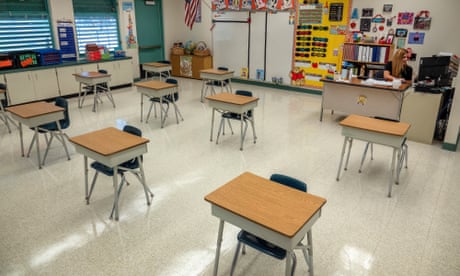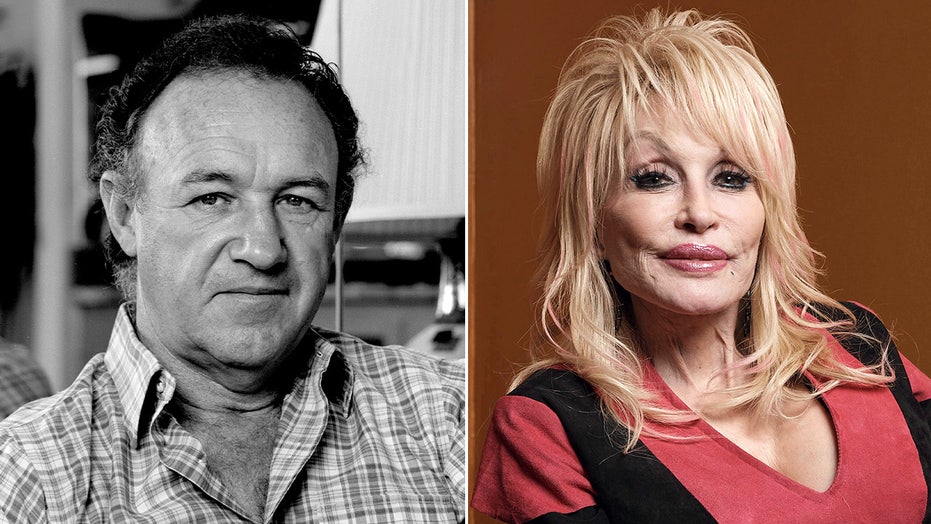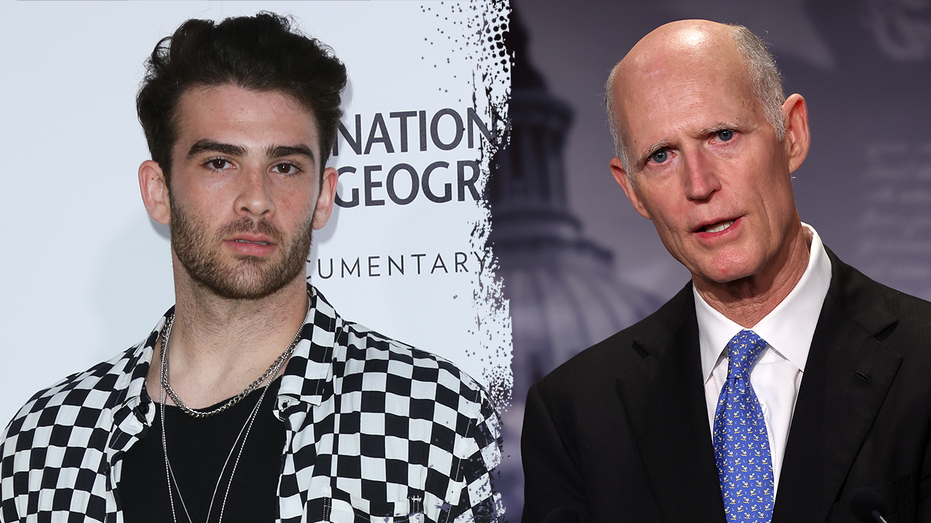- by foxnews
- 05 Mar 2025
?Morale is low?: US teachers push back on school reopenings amid Omicron wave
‘Morale is low’: US teachers push back on school reopenings amid Omicron wave
- by theguardian
- 09 Jan 2022
- in news

Many teachers across the US are resisting immediate school reopenings and asking for improved safety measures this month as a record number of Covid-19 cases have been recorded as a result of the spread of the Omicron variant.
A few school districts have opted to restart school after the winter break remotely for the first week or two, while most others are grappling with tightening or reinstituting Covid-19 safety protocols.
Several teachers who spoke to the Guardian expressed concerns over severe staffing shortages, a lack of adequate and promised personal protective equipment, difficulties in accessing Covid testing and worsening overall working conditions.
Rori Abernethy, a teacher in San Francisco, California, said teachers are being faced with severe staffing shortages that are forcing teachers to serve as substitutes during preparation time and are increasing their classroom sizes due to teachers and other staff retiring, resigning, or calling out sick.
"This is the hardest teaching year I've had in 20 years," said Abernethy. "Morale is low amongst teachers and it feels like the whole city is fighting over politics and no one cares about what teachers are going through in the classroom. If we do complain, people are cruel and tell us to quit or that we don't care about kids."
She also noted staff and students haven't received enough personal protective equipment such as proper masks, that Covid testing is difficult for teachers given stringent drop-off times and is not mandated or easily available for students, and that Covid sick leave for teachers expired at the end of 2021. According to Abernethy, four teachers at her school quit before winter break, and 25 staff were absent on the first day of school after the break, on 3 January, though student attendance was normal.
There were 575,000 fewer local and state education employees in October 2021 than in February 2020. Before the pandemic, teacher shortages were widespread and growing throughout the US, while many public school buildings were crumbling, in dire need of repairs, proper upkeep or replacement.
Retha Roblero, an elementary school teacher in Columbus, Ohio, participated in a safety strike on 3 January with other teachers who were working in their school building while students were remote, as part of the building had no working heat. Less than an hour after the strike began, teachers were permitted by the district to work remotely.
"There's no good answer," said Roblero, about the choice between in-person or remote learning in response to Covid surges. "I want to be in person teaching every day. But I also don't want to carry something or somebody else to carry something."
Alison Ross, a teacher for about 20 years based in the Atlanta, Georgia, area, resigned from her school district position in fall 2020 over a disregard for Covid protections as she is immunocompromised. She has been tutoring and teaching remotely part-time, while relying on savings, and is dismayed at the prospect of returning to a full-time position as the pandemic continues to spread in the US.
"I feel like my livelihood was stolen from me," said Ross. "We could afford N95 masks for everybody, we could afford good ventilation, we can afford paying teachers more and having smaller classes. These are all choices that as a society, our government has made. People just think that's just how it has to be and that's not how it has to be."
A teacher in Crested Butte, Colorado, who requested to remain anonymous for fear of retaliation described a lack of testing options for staff and students, with long wait lines at testing sites and no at-home tests available. The teacher says staff have been reporting to work after testing positive and there's a lack of transparency in contact tracing compared with previous periods during the pandemic.
"We have been told that they simply do not have the staff or time to deal with it, so contact tracing is out the window," the teacher said. "The morale is quite low because staff feel uncared for. I know several teachers with the mindset that we will all get it eventually so let's just get it over with. As teachers, we're the ones that take on the brunt of it to protect the kids."
Staffing shortages in their school district have also extended to a lack of school bus drivers, substitute teachers, cafeteria workers and a decline in student attendance. They already used up their Covid sick leave earlier this school year when they tested positive after their son caught it, despite being fully vaccinated.
"To the general public and administration, it just feels that staff and student health doesn't matter. We should have tested to return. No one wants to wear masks or go to school virtually, however now we may be forced to do so without a plan in place," the teacher added. "I have been searching for jobs that are safer and value my family's health and safety more. We feel so undervalued."
In New York City, teachers held a protest during the first school week in January over school reopenings and a lack of Covid safety measures for students and staff.
"We're concerned about not having a negative Covid result as a requirement for returning like other school districts and private schools had," said Ronnie Almonte, a teacher at Bard High School Early College in Manhattan, who noted Bard College requires a negative test to return to the campus this spring. He also expressed concerns with the new Covid isolation guidelines, which decreased isolation days from 10 to five days.
Teachers in Chicago voted to return to remote learning over lack of Covid safety measures, though Chicago public schools cancelled school and locked out teachers from electronic accounts in retaliation.
Sarah Caswell, a science teacher in Philadelphia, argued the push to continue in-person school during a pandemic hasn't accounted for the problems facing public education systems before the pandemic began, from overcrowding to excessive standardized testing and socio-economic disparities, with Covid further exposing those problems.
"Morale is the absolute lowest that I've ever seen it," said Caswell. "This goes from the top all the way down through the building administration. They expect that we're going to treat families and students with grace and understand that everybody's living through these crazy times and be supportive and encouraging, which is absolutely what we have to do and should be doing right now. But they don't show the same grace with us."
In Philadelphia, 81 schools switched to remote learning with less than 24 hours notice, and Caswell noted that numerous staff at her school tested positive during the first day of school.
"It's this constant anxiety and stress," added Caswell. "It's just a lot of pressure from a lot of different directions and not a whole lot of compassion and grace. My belief is the academics will work their way out. Kids are resilient when you provide them with the right support, and instead we're saying that we're going to go back to what we've always done. That didn't work before the pandemic, so why does it work now?"
- by foxnews
- descember 09, 2016
Popular travel destination breaks annual tourism record, sets new goal of 60M visitors
After breaking an annual tourism record in 2024, Japan looks to reach 60 million visitors by 2030. Officials tell Fox News Digital how Japan plans to attract visitors.
read more


